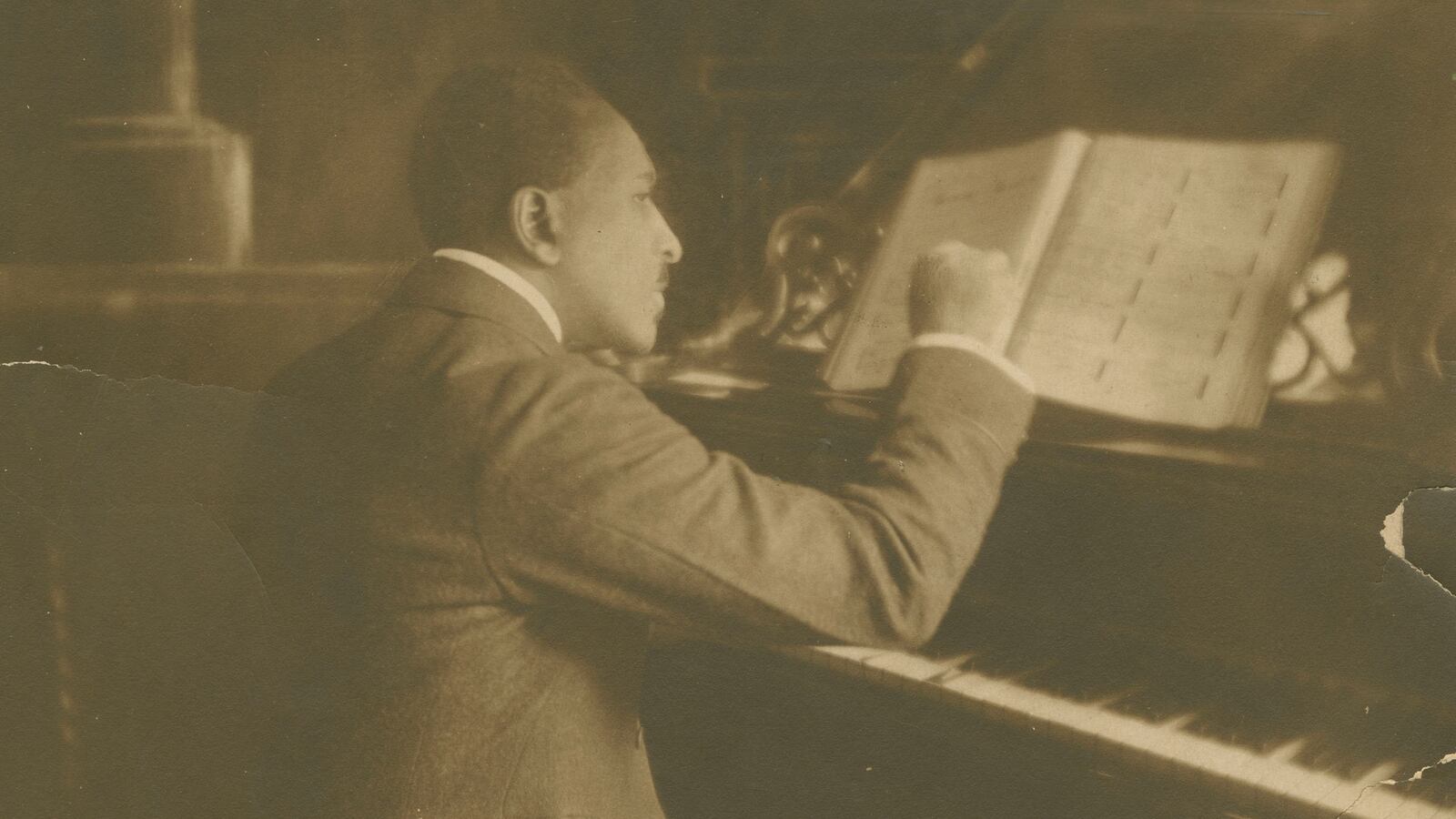As if by magic—or, more appropriately, voodoo—an all but forgotten Harlem Renaissance opera is getting a second chance at life this weekend at Columbia University.
Morningside Opera, Harlem Opera Theatre and The Harlem Chamber Players have joined forces to revive composer Harry Lawrence Freeman’s Voodoo.
While it became the first opera ever composed by an African American to hit Broadway when it was performed in 1928, Voodoo has long fallen into obscurity.
In the nearly 90 years since its performance debut, the opera about a love triangle on a Louisiana plantation shortly after the Civil War has languished in musical memory.
But this Friday and Saturday night, Voodoo will be live on stage in New York City once again at Columbia University’s Miller Theatre—thanks in large part to one of the university’s graduate students.
Voodoo was rediscovered by Morningside Opera’s Annie Holt while she was working at Columbia University’s Rare Book and Manuscript Library.

“I had the honor of being the intake person at the library when the Freeman manuscript scores were donated to Columbia,” Holt, who had an internship at the library in 2008 while she was earning her PhD in theater at Columbia, told The Daily Beast. “I was serendipitously assigned to be the processing archivist for the Freeman papers, and I realized how many scores were there.”
As she archived Freeman’s papers, which were donated in 2007, Holt saw a golden opportunity to rescue one of his works from the dustbin of history.
“I got really excited about putting one onstage, so I’ve been working towards that since 2008,” she said.
Freeman (1869-1954) was well known in the Harlem community during his lifetime for a number of his compositions, including his first opera, Epthalia, which was produced in 1891.
Voodoo earned Freeman the prestigious Harmon Award, which was granted to African Americans who made significant artistic, cultural, and scientific contribution to U.S. society. The opera incorporates Western classical music, as well as African American spirituals in the tale of a woman who relies on voodoo to turn the screws on her romantic competitor.
Voodoo was hardly Freeman’s only opera to receive mainstream attention. A production of his opera, The Martyr, was mounted at Carnegie Hall in 1947.
But despite these achievements, most of Freeman’s operas remain unpublished.
“There is no record of it [Voodoo] on YouTube or anywhere else, so we are literally starting from scratch, having to figure out what his intention was and just how of this is all going to work together,” Harlem Opera Theatre Artistic Director and Voodoo conductor Gregory Hopkins told The Daily Beast.
Morningside Opera and Harlem Opera Theatre were forced to work off of photocopies of Freeman’s original handwritten scores—the ones Holt had uncovered in the library.
In turn, that led to another unique challenge in mounting the upcoming concert version of Voodoo.
Freeman only produced a handwritten “Piano Vocal Score” with the singers’ music and a handwritten “Conductor’s Score” with the full orchestral instrumentation for every instrument. The problem is that each instrumental section of an orchestra needs their portion of the score separated, so they can read and play only their part.
Thus, Morningside Opera and Annie Holt had to improvise—or rather, innovate thanks to modern musical technology.
“Morningside Opera prepared a transcribed digital version of the handwritten score,” explained Holt. “One of our artist company members, Michael Shaw, input the full manuscript score with the full orchestra score into the software program Finale to generate digital printed music for each instrumental section.”
However, technology’s role in this production of Voodoo is still limited to a degree. The artistic team decided to have the singers use actual photocopies of Freeman’s handwritten original manuscript vocal score.
In the rehearsal room, it was striking to see the choristers reading Freeman’s score, handwritten over 80 years ago, on their iPads.

“Obviously it’s a little challenging to read, but it’s also been really awesome and I think this is part of why we have this feeling of intimacy with Freeman,” Holt sad. “We are looking at his handwriting, his notation, all those crazy things he writes in the margins.”
Not that this method hasn’t posed its own difficulties. “It’s been really fun while also struggling sometimes with his bad handwriting,” admitted Holt.

However, struggling with Freeman’s handwriting has provided tremendous insights into his vision for the stage layout and action, which are invaluable benefits for the 2015 production team.
“In the original piano vocal score that we’re working off of in Freeman’s handwriting, he writes all the stage directions, and they remind me of Tennessee Williams,” Voodoo director Melissa Crespo told The Daily Beast.
“They’re very expressionistic and vivid, lots of imagery. He writes there is an oak tree ‘whitened as though from leprosy.’ It’s incredibly evocative and seeing it in his handwriting there is amazing.”

Unfortunately, the team could not produce Voodoo in its entirety this time around.
“There are four dance suites, but we had to keep it under two and a half hours, so we couldn’t include all of them. There is just so much you can do with this. It’s a grand scale piece that is itching to be done in a big space,” said Crespo. “This piece is a director’s dream. I hope someone produces it.”
All the participants hope the upcoming concert will spark greater interest in Freeman’s mostly overlooked musical legacy.
“I think it is incredible to note that we are bringing life to one opera, but Freeman wrote over twenty,” said Hopkins.
“It must have been tremendously frustrating to have all of this inside of you that you wanted to say musically and not be able to get anyone to give you a platform to say it,” Hopkins said.
“He says things about Afro-centric experiences through the expression of opera that no else has said. These are expressions that I think the world needs to hear.”
Voodoo will be performed at Columbia University’s Miller Theatre, 2960 Broadway, New York, on June 26 and 27: book online or call 212-866-1492.






